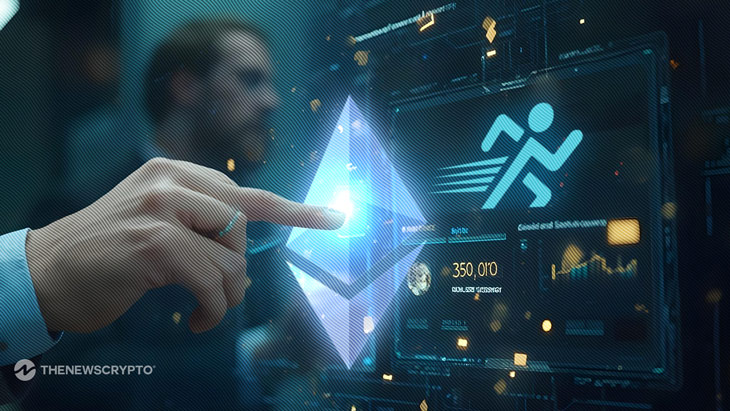
 Ethereum News
Ethereum News- EIP-7781 aims to decrease block times on Ethereum from 12 seconds to 8 seconds.
- Increased blob capacity will help lower layer-2 network fees.
Ethereum’s latest proposal, EIP-7781, was introduced by Illyriad Games co-founder Ben Adams on Oct. 5. The proposal aims to cut block times from 12 seconds to eight seconds. This reduction would increase Ethereum’s network throughput by 50%, benefiting decentralized finance (DeFi) platforms and decentralized exchanges (DEXs). Prominent figures like Vitalik Buterin and Justin Drake support this initiative. They believe that shorter block times could improve network efficiency while lowering user costs, particularly in DeFi.
EIP-7781 also aims to enhance layer-2 scaling solutions by increasing blob capacity. Blobs, temporary data structures, help reduce network fees on layer-2 rollups like Arbitrum and Optimism. The proposed changes could improve transaction efficiency on DEXs by 22%. This efficiency boost could potentially save up to $100 million annually by reducing arbitrage opportunities between centralized exchanges (CEXs) and DEXs. With Ethereum aiming to balance performance and cost efficiency, this proposal is a significant step forward.
Concerns and Optimism Surrounding Ethereum’s EIP-7781 Proposal
However, concerns have emerged regarding its impact on solo stakers. Shorter block times could lead to faster state growth, requiring more powerful hardware to handle data propagation. Critics worry this could push solo stakers out of the network, threatening decentralization. Adam Cochran of Cinnehaim Ventures raised concerns about the impact on stakers with limited hardware. Yet, he believes the gas limit remaining unchanged could mitigate these issues for most participants.
This proposal follows discussions about lowering the validator minimum from 32 ETH to as low as 16 ETH. Lowering this threshold would make it easier for more users to participate in staking, improving network security and decentralization.
While EIP-7781 presents challenges, Ethereum developers remain optimistic about its potential. By enhancing throughput and reducing costs, the proposal aligns with Ethereum’s long-term scalability goals. If EIP-7781 is adopted, it could significantly improve the Ethereum network’s performance. The combination of shorter block times and increased blob capacity promises to enhance DeFi operations and boost transaction efficiency across the network.
Highlighted Crypto News Today
Tether Celebrates 10th Anniversary with Documentary on USDT Stablecoin
Source: https://thenewscrypto.com/ethereums-proposal-aims-to-skyrocket-throughput-by-50-percent/